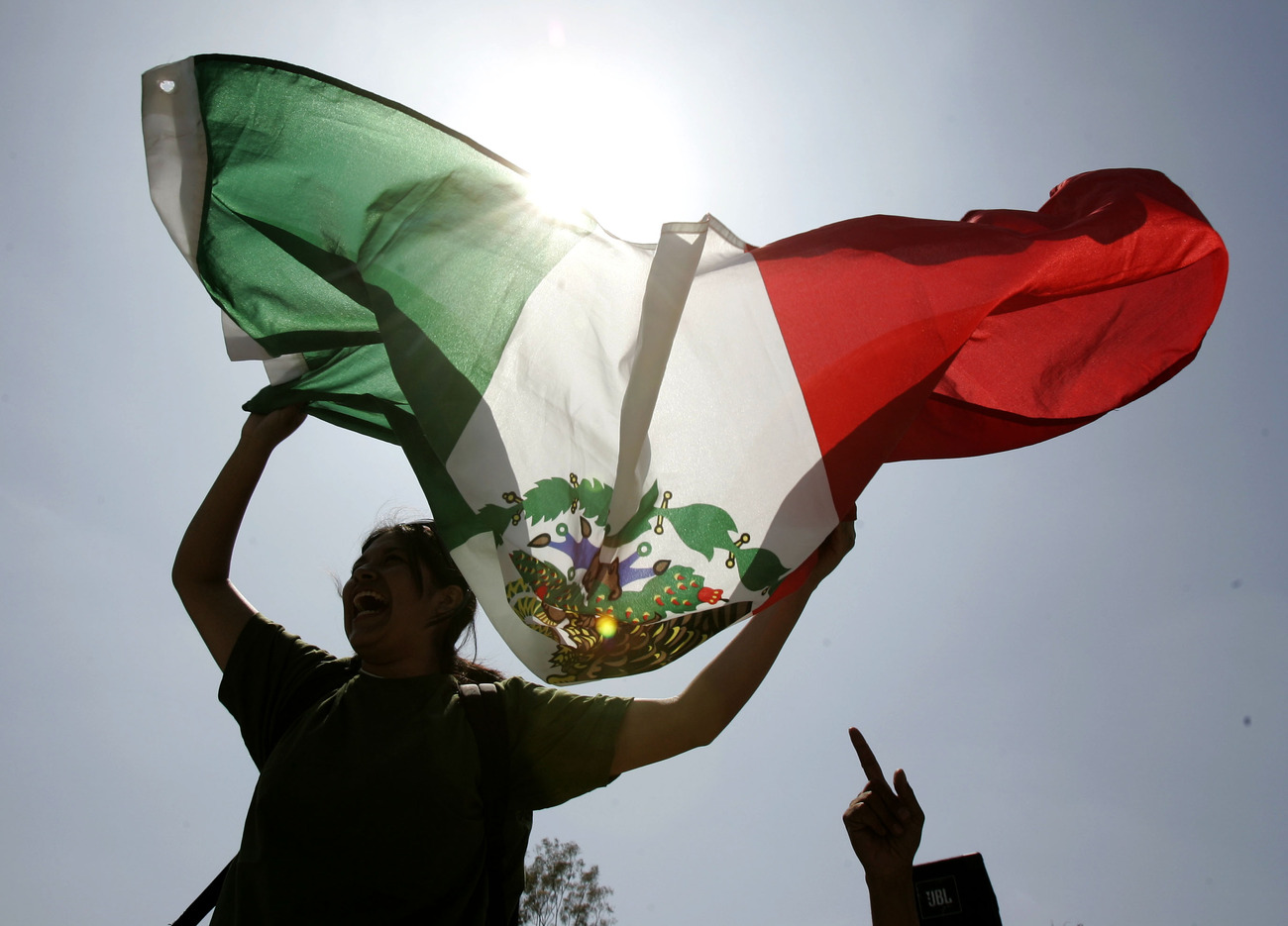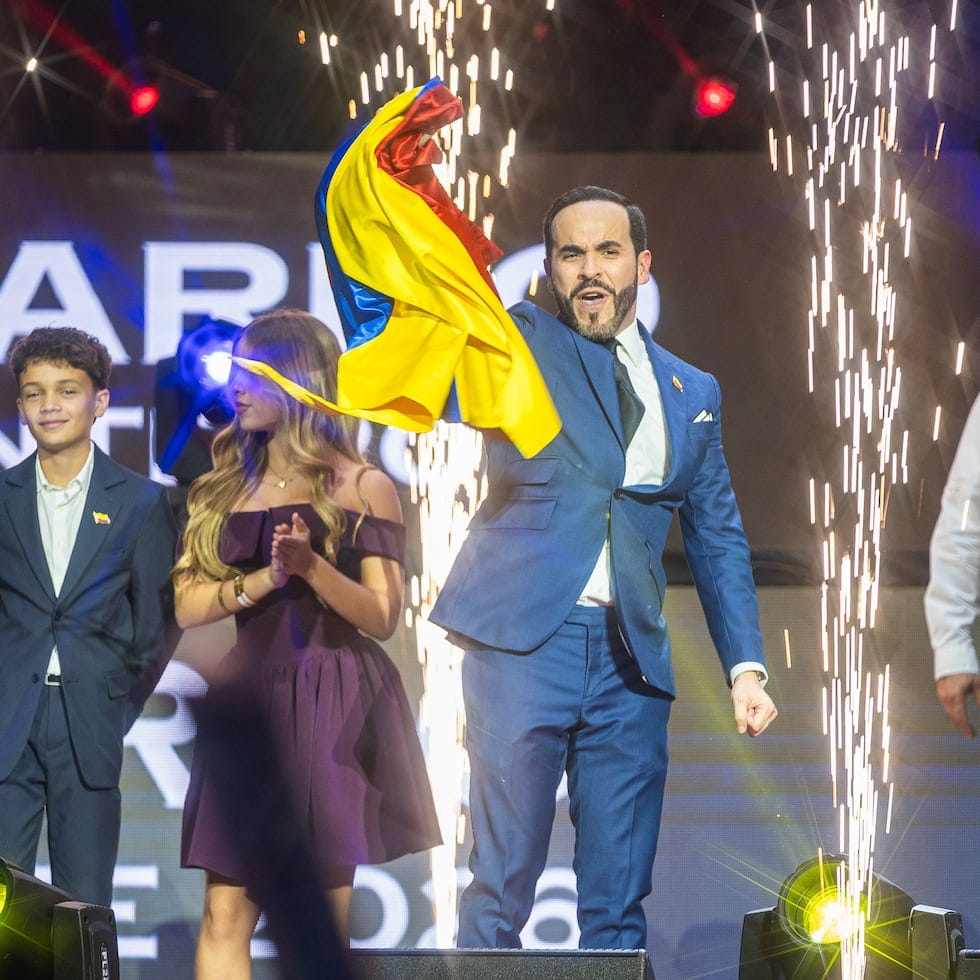Interview: Wilson Center's Andrew Selee on Mexico's Cabinet Shuffle
Interview: Wilson Center's Andrew Selee on Mexico's Cabinet Shuffle
Andrew Selee, director of the Woodrow Wilson Center's Mexico Institute, talks with AS/COA Online about the July 14 Mexican cabinet shuffle and what it signifies for President Felipe Calderón’s last two years in office.
Director of the Woodrow Wilson Center's Mexico Institute Andrew Selee talked with AS/COA Online’s Cecilia Farfán Méndez about the implications of the July 14 cabinet changes in Mexico that saw the resignation of Interior Secretary Fernando Gómez Mont, the move of economy secretary Gerardo Ruiz Mateos to chief of staff, and the appointment of Bruno Ferrari as Ruiz Mateos’ replacement. The cabinet shuffle came less than two weeks after gubernatorial elections, when the Institutional Revolutionary Party (PRI) won nine out of 12 governorships up for grabs. But President Felipe Calderón’s center-right National Action Party (PAN) picked up some surprise election wins as well, particularly in states where the PAN formed unlikely alliances with the center-left Party of the Democratic Revolution (PRD).
Selee offers insight into what the cabinet changes signify in the last two years of Calderón’s presidency. “I think the president has some leverage to negotiate with the PRI because Mexico’s political system will remain very competitive until [presidential elections in] 2012. Anyone can win, even though the PRI is the favorite,” says Selee. “That said, much depends on whether the different factions within the PRI can agree on their willingness to negotiate with President Calderón.”
AS/COA: Why do you think President Calderón decided to make these cabinet changes now?
Selee: I think the change of the secretary of the Interior from [Fernando] Gómez Mont was something that was probably planned a few months ago, but he decided to wait until after the election to make it happen. Gomez Mont had resigned from the PAN as a result of his disagreement over the way the alliance between his party and the PRD came about and it was only a matter of time before he left the administration or was asked to leave. The timing was probably done so as not to happen before the election. I think it really was a question of trying to find a moment where it would not affect Calderón politically.
AS/COA: How would you interpret the move Gerardo Ruiz Mateos from economy secretary to chief of staff?
Selee: Well, Ruiz Mateos is someone who’s personally close to President Calderón. We’ve seen over that past three years that he has had a preference for choosing people who were supportive of him on the campaign, including during the primary campaign within the PAN. That small inner circle of people consists of those who have held the key positions in the president’s office. Ruiz Mateos is part of that group of people who have been Calderón loyalists over the past few years. I think Calderón feels very comfortable working with him and feels that his experience as cabinet secretary will be helpful in moving his agenda forward.
AS/COA: Can you talk about why Bruno Ferrari was appointed as the new economy secretary?
Selee: Bruno Ferrari has certainly been quite active in his role in ProMexico. He’s had, I think, what the president perceives as a very successful campaign to promote Mexico’s image, but I don’t know enough of the background on that decision.
AS/COA: Do you think that the choice of Blake Mora, the new interior secretary, will help or hinder divisions in the PAN?
Selee: Well, it was a surprise choice. Blake Mora is well respected among his colleagues in Baja California, but he’s not a nationally known figure within either the PAN or the political establishment in general. Again, he is someone who’s been personally close to President Calderón; they served together in Congress from 2000 to 2003 and they know each other well. But it is a surprise choice. Generally speaking, interior secretaries in Mexico have either been former governors, nationally known political figures, or someone who had actually coordinated the presidential campaign. Blake Mora falls outside those criteria. He’s a different sort of choice, someone the president feels comfortable with, but who will have to really introduce himself to a lot of people he’ll be working with: governors, members of congress, mayors, and other key political leaders in the country.
So it’s hard to say how that will affect relations in the party or the political establishment in general. He’s something of an unknown outside of his home state and among a small group of people within the PAN who know him personally.
AS/COA: Following up with that, do you think that he has time to learn? They have two years left in office. As you said he has to introduce himself to all these political figures. Will he have the time to do so and be successful at it?
Selee: I think there are two possibilities here. One may be that President Calderón sees himself handling some of that political role that the interior secretary usually handles. It may be the case that he sees himself playing that role directly from Los Pinos and he wants an interior secretary who will play a much more administrative role—who will be running the agencies within the Department of the Interior, who will be a liaison to counterparts in the United States and elsewhere, but who will be less of a political figure.
The other possibility is that he is looking for Mora to really step in and become his political heavyweight within the administration. If that’s the case, he has a steep learning curve in a short period of time, and it will depend a great deal on Mora’s political skills.
AS/COA: Related to that, do you think that the cabinet changes made by President Calderón, combined with the surprise victories of the PAN during the gubernatorial elections, will give the president the maneuvering room he needs to negotiate with the PRI to push through important reforms?
Selee: I think the president has some leverage to negotiate with the PRI because Mexico’s political system will remain very competitive until 2012. Anyone can win, even though the PRI is the favorite. That said, much depends on whether the different factions within the PRI can agree on their willingness to negotiate with President Calderón. That hangs on the negotiations within that party about who is likely to be the presidential candidate, what the program is going to look like, and what issues they want to run their campaign on. Once the PRI defines if there are one or two signature issues that they want to show they can lead on before the 2012 elections, there may be some ability to sit down with President Calderón and actually define a policy agenda. But I think it depends more on the PRI than it does on President Calderón. He’s put out a set of issues that he wants to work on, but he doesn’t yet have a counterpart in Congress who’s willing to pick up one or more of those.
AS/COA: Finally, do you think that President Calderón is now just concentrating on finding a presidential candidate, someone who will share his security concerns? Is he now doing that from Los Pinos?
Selee: Well I think President Calderón is in a difficult position. On the one hand, he’s very much a politician and, like every other politician in Mexico, will begin to be preoccupied with the presidential election of 2012 and who his party’s candidate will be. On the other hand, he has to be the president of Mexico, move a policy agenda forward, and try and work with all the other political parties and all of the different interests in Mexico that have issues on the political agenda. Hopefully he can separate those two going forward. These are challenges that can come into contradiction and, hopefully, he sees his primary role as being that of president without expecting him to completely forget that he’s also a man with a party.








